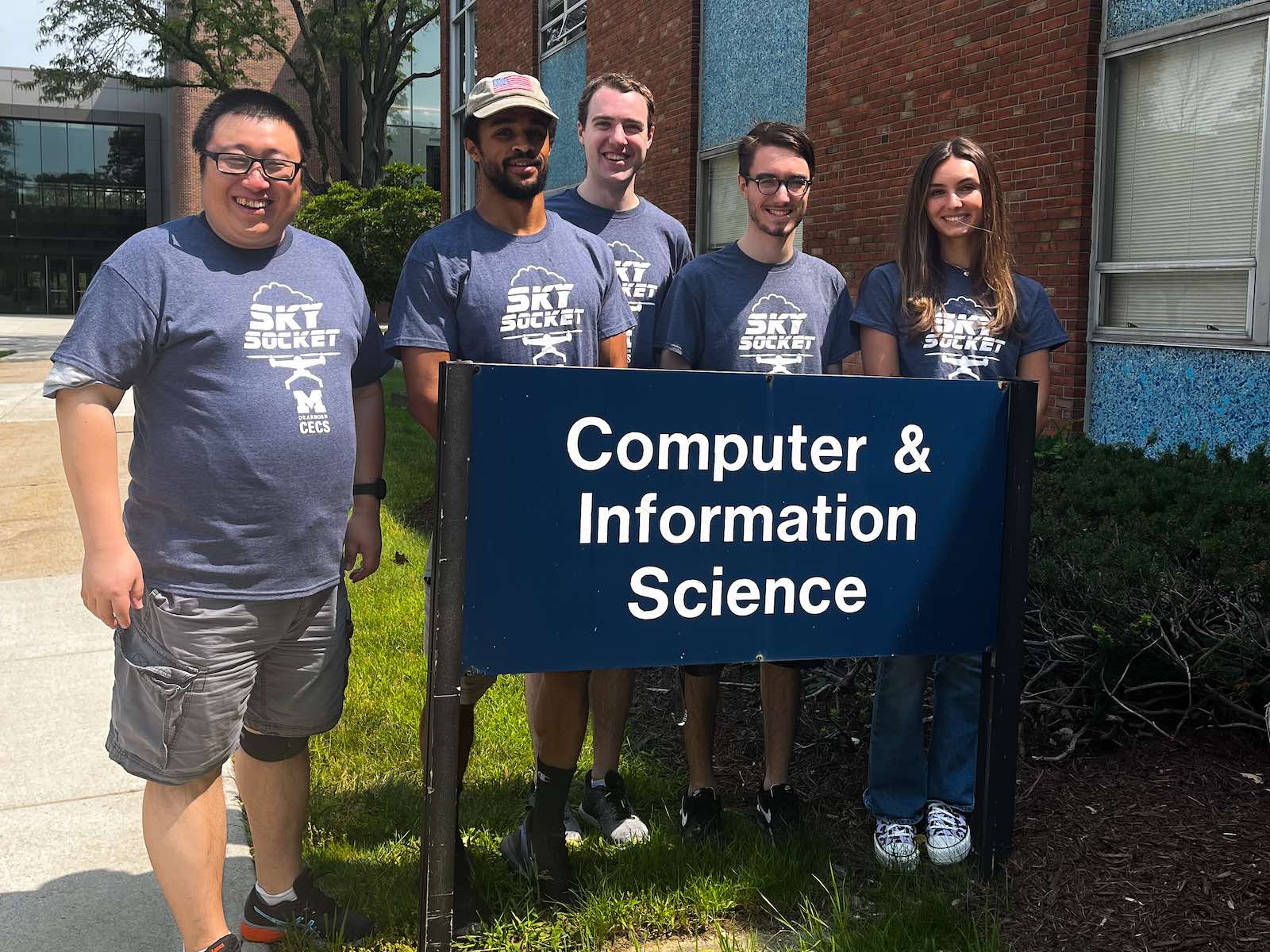
High school robotics clubs or computer science classes provide many students with a gateway to a college experience in a STEM field. Unfortunately, College of Engineering and Computer Science senior Olivia Pellegrini’s small Downriver high school didn’t have anything like that. What she did have was a big brother who looked out for his younger sister. When she was in high school, he was studying computer engineering at UM-Dearborn, and recognizing his sibling’s love of math, he started teaching her all the stuff he was learning in his introductory computer science courses. “I guess we sort of had our own little computer science club at my house, just the two of us,” Pellegrini says. The brotherly mentoring had an impact: When Pellegrini graduated, she followed in his footsteps and enrolled at UM-Dearborn, where she zeroed in on a major in computer science.
After working her way through her introductory classes, Pellegrini discovered a passion for cybersecurity. She loved that the courses were often built around real-world projects. In one of Professor Di Ma’s classes, for example, they dug into the security vulnerabilities of actual Android apps. In a course with Associate Professor Anys Bacha, the students got to recreate the infamous Samy worm attack on MySpace, one of the seminal attacks on a social media platform. “It was pretty cool to play the role of attacker and actually see how the attacks work, because that’s how you learn to defend against them,” Pellegrini says. “It’s one thing to learn the concept from a book, but when you can actually implement it, it sticks, and it’s there now, like a tool in your toolbox that you can pull out whenever you need it.”
The practical, hands-on learning continued with Assistant Professor Zheng Song, who tapped Pellegrini and her senior design teammates for a research project focusing on edge computing applications for unmanned aerial vehicles or UAVs. Their project, dubbed Sky Socket, involved working on a drone-vehicle communication system. The system allowed drones to conduct advanced reconnaissance and relay information back to ground vehicles, giving emergency or military personnel the ability to have eyes on the ground far beyond their actual lines of sight. The work was so successful that Song, Pellegrini and her teammates presented the results in a paper at the IEEE: MOST conference, an international gathering of experts focusing on advanced mobility technologies. After senior design, Pellegrini continued to work in Song’s lab, this time on a project focusing on API key leakage, an emerging cybersecurity threat in the app-based software space. Their analysis of GitHub software repositories revealed that some 40,000 API keys, a vital security feature, are revealed in plain text. They’ve submitted that work for publication as well.

Two internships gave Pellegrini yet another avenue for hands-on learning. Most recently, she worked at Marathon Petroleum in Detroit, where she created visual dashboards that helped the company’s engineers monitor critical systems. And during COVID, Pellegrini scored a spot on the team that manages FordPass, the smartphone app for the automaker’s connected vehicle features like remote start. That opportunity gave her some valuable remote work experience, though it did come with one nice in-person perk: During the final week, all the interns got to test drive the electric Mustang Mach-E and the Ford F-150 Lightning.
On top of all this, Pellegrini even found time to play two years of volleyball, an experience she never imagined she’d have at the college level. In fact, as she looks back on her college career, she’s surprised herself in a lot of ways. “I definitely think that through doing all these extracurriculars, like research and internships, it’s really boosted my confidence,” she says. “I was actually kind of shy before. And especially through playing volleyball and hanging out with those girls, it made me a more social person, so then I wasn’t afraid to do something like contact a professor about a research opportunity or talk to an employer at a career fair. Now, because of the research I did with Professor Song, I see myself working in the automotive field, especially something involving computer vision or artificial intelligence. That’s not something I would have even dreamed about heading into college.”
With a resume like hers, it’s a dream that’s certainly within reach.
###
Story by Lou Blouin





